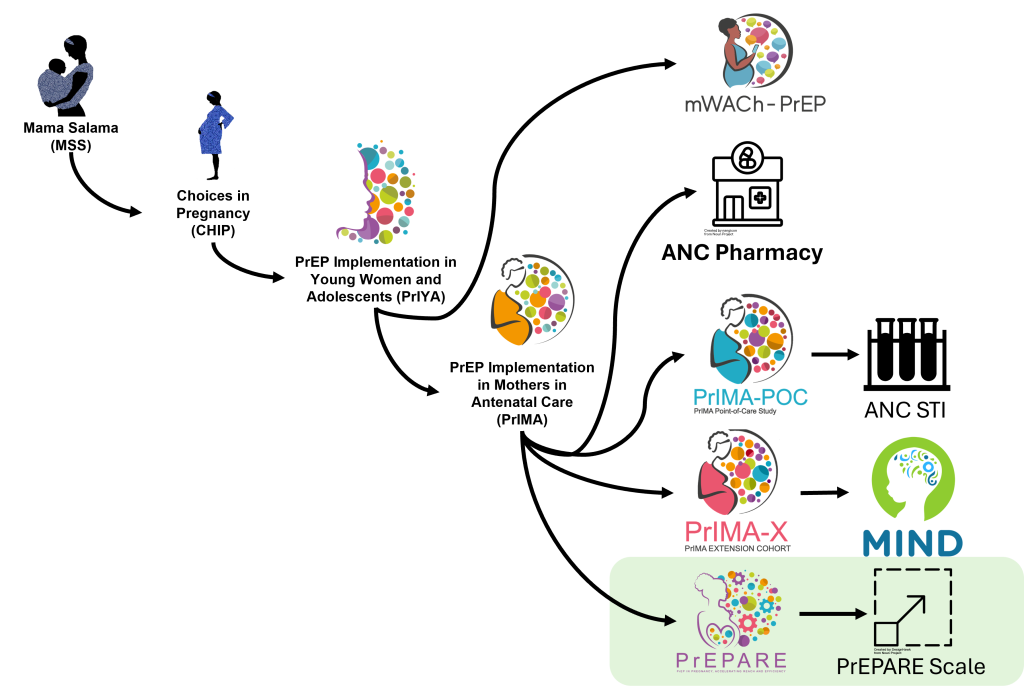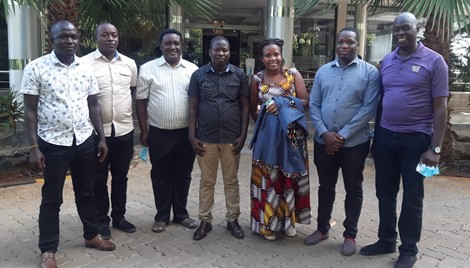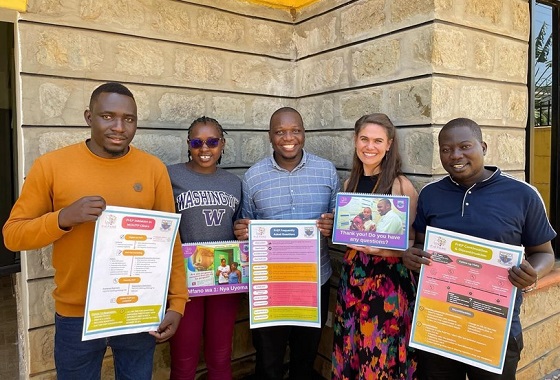May 20, 2024
New grant supports scaling up integrated PrEP delivery to Kenyan pregnant and postpartum women
Pregnancy is a high risk time for acquiring HIV. PrEP is a safe and effective prevention strategy to reduce women’s risk of acquiring HIV in pregnancy and postpartum and consequently vertical HIV transmission, improved health outcomes for both mother and child. In Kenya, this daily oral medication is being delivered in some regions during these life stages integrated into maternal and child (MCH) clinics, but scale-up has been sub-optimal.
Researchers from Global WACh and Kenyatta National Hospital have co-led implementation science studies focused on delivering integrated PrEP in routine MCH care, testing strategies to optimize delivery in western Kenyan counties. These represented the first and largest projects to deliver PrEP integrated into MCH clinics. Integrated PrEP delivery is now ready for scale up more broadly, which will require new implementation strategies to facilitate scale up.

This graphic depicts a suite of studies focused on delivering PrEP integrated in MCH care to adolescent girls and women. The new grant follows the PrEPARE study (Dr. Anjuli Wagner’s NIH K01 award).
Drs. Anjuli Wagner (Assistant Professor, Global Health) and John Kinuthia (Head of Research & Programs, Kenyatta National Hospital), investigators who have played key roles in several integrated PrEP delivery studies, are the Multiple Principal Investigators of a new five-year grant titled “Scaling up integrated PrEP delivery in Kenyan maternal and child health clinics for pregnant and postpartum women” funded by the National Institutes of Health. The investigative team includes expertise in implementation science, PrEP, HIV prevention during pregnancy and postpartum, engagement with Ministry of Health, mixed-methods, configurational analyses, and strong expertise in delivery of PrEP in MCH.
This study builds off the exceptional work conducted in Kenya by the PrEPARE team including current IARTP students Ben Ochieng and Joseph Sila. Through the PrEPARE study, the team identified four packages implementation strategies to improve PrEP delivery in MCH clinics. The PrEPARE Scale study will not only build on the lessons learned from the PrEPARE Pilot rounds, but also build on the expertise and knowledge developed by the Kenya team to lead and facilitate a community of practice for health care workers in eight counties in Kenya to learn best practices of PrEP delivery in Maternal and Child Health clinics.

PrEPARE pilot study team members (L-R: Ben Ochieng, Joseph Sila, Dr. John Kinuthia [Project PI], Enock Sifuna, Dr. Nancy Ngumbau, George Oketch, Felix Abuna [Project Director]) will be joined by new team members in Kenya to accomplish the ambitious PrEPARE Scale project.

PrEPARE pilot study team members (L-R: Fred Awuor, Saphine Watoyi, George Oketch, Anjuli Wagner, and Enock Sifuna) display IEC materials developed in the PrEPARE pilot study that will be used in the PrEPARE Scale study.
In this study, investigators will leverage the experiences of health care workers (HCW), expertise from research team members, and heterogeneity between sites and counties, to develop and test a package of scale-up strategies for improving PrEP delivery.
We look forward to sharing study findings that offer effective tools and strategies to enhance and lead to successful implementation. If you are a trainee who is interested in collaborating with our team, we are actively seeking candidates for diversity supplements and other training opportunities. Please contact Dr. Wagner at anjuliw@uw.edu with inquiries.